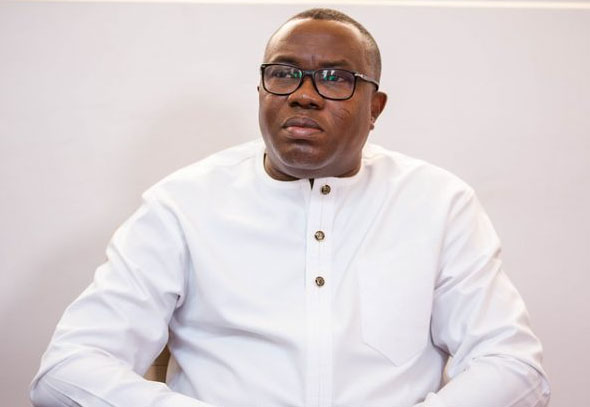Samuel Ofosu-Ampofo
A transcription and translation of the audio recording for which the National Chairman of the opposition National Democratic Congress (NDC), Samuel Ofosu-Ampofo, was hauled before court has been adopted as evidence by an Accra High Court.
The tape which is one of the pieces of evidence the prosecution is relying on is yet to be presented to the court, but the transcription was yesterday admitted by the court.
Isaac Osei, a lecturer at the Ghana Institute of Languages (GIL), who did the transcription of the audio tape, tendered it when he appeared before the court as the prosecution’s second witness in the trial.
Trial
NDC Chairman Ofosu-Ampofo and one of the party’s leading communicators, Anthony Kwaku Boahen, are on trial over the tape which captures how the opposition NDC was allegedly planning to commit crimes in the country and turn round to blame them on the ruling New Patriotic Party (NPP).
Among the strategies were the creation of a general state of insecurity in the country through kidnappings, arson, and verbal attacks on public officials like the Chairman of the National Peace Council, Prof. Emmanuel Asante, and Electoral Commission boss, Jean Mensa.
Mr. Ofosu-Ampofo has been charged with one count of conspiracy to cause harm and two counts of assault against a public officer, while Kwaku Boahen is facing one count of conspiracy to cause harm.
Isaac Osei is the second witness in the trial which resumed yesterday after the legal vacation and he tendered in evidence a transcription of the ‘explosive’ tape which was given to him.
Opposition
The admission and adoption generated controversies as lawyers for the accused persons vehemently objected to the tendering.
Tony Lithur, representing Ofosu-Ampofo, argued that the witness in his statements mentioned an audio recording which is not in evidence and their fundamental objection is that it will be prejudicial for the witness to talk about it as though it was already in evidence.
He said looking at the witness statement, the witness did not say he was tendering the said audio recording but rather he was made to transcribe it.
“Allowing this witness statement to be tendered simply creates a prejudicial opening for the eventual tendering of the audio recording on the basis, perhaps that evidence has already regarding the transcript. We object very vehemently,” Mr. Lithur argued.
Dr. Aziz Bamba, counsel for Kwaku Boahen, said in the absence of the purported audio recording which the witness said he was asked to transcribe and translate, the witness statement was “totally and completely irrelevant and should not be admitted.”
DPP’s Opposition
The Director of Public Prosecutions (DPP), Yvonne Atakora-Obuobisa, opposed the objection, stating that the trial was preceded by a case management conference which states the defence could have objected to the admission of the transcription but they did not.
She said the statement was filed as far back as June 25, 2020 and the defence had their copies, so it is very late for them to be objecting to the tendering now.
She added that the fact that the audio has not yet been played in the courtroom does not affect the admissibility of the witness statement together with its attachments.
The court presided over by Justice Samuel AdibuAsiedu, a Court of Appeal judge sitting as an additional High Court judge in his ruling, held that the fact that the alleged audio recording has not been tendered cannot bar the tendering of the transcription.
He ruled that the witness cannot tender the audio tape because he did not make it and he also stated that he was only given the tape to transcribe.
He added that in the event the said audio is not admitted by the court, then the transcription will carry little or no weight at all and the court subsequently admitted the witness statements and its attachments which included the transcription and translations.
Cross-Examination
During cross-examination, Mr. Lithur asked the witness if he knew how the tape was obtained and he said he did not.
He again asked the witness if he could say anything regarding the ‘truth’ or otherwise of the audio tape and the witness said he did not because he only transcribed what was on the audio recording.
Hearing continues today.
BY Gibril Abdul Razak

